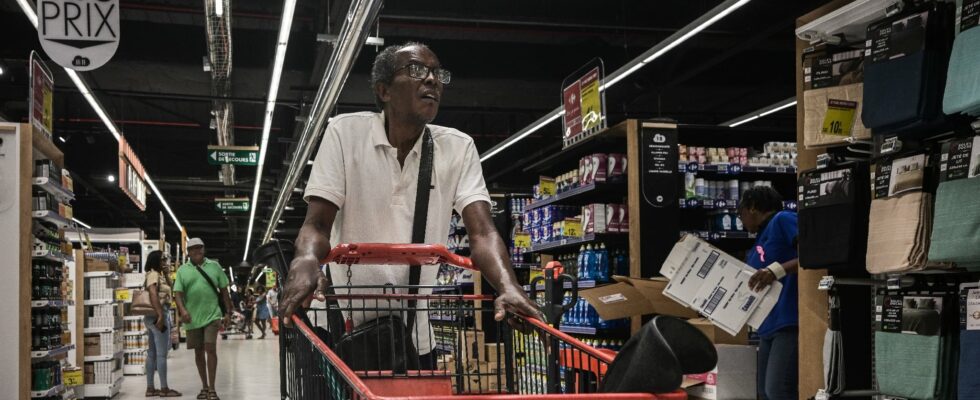An agreement, but a crisis which continues: the State announced on the evening of Wednesday October 16 that it had signed an agreement, in particular with distributors, to reduce food prices in Martinique by “20% on average”, scene since September of a mobilization against the high cost of living. This agreement, reached on Wednesday evening in Fort-de-France at the end of a seventh round of negotiations and announced by the prefect of Martinique, was however not signed by the collective Rally for the Protection of African Peoples and Resources. Caribbean (RPPRAC), at the origin of the mobilization since September 1, which slammed the door and called to “continue the movement”.
“The accumulation of collective efforts provided for in the protocol will allow hypermarkets to make a reduction of 20% on average in the sales prices currently practiced on a list of 54 families of products corresponding to the most consumed food products in Martinique”, a writes the prefect in a press release.
The “protocol of objectives and means to combat the high cost of living”, in this territory where food prices are currently 40% higher than in France, was signed between the local prefecture, the Territorial Collectivity of Martinique and a battery of local players, ranging from distributors (hypermarkets and supermarkets in particular) to parliamentarians, including the Grand Port maritime and the transporter CMA-CGM.
An “emergency” for the Martinique economy
“The lasting drop in food prices will result in particular, among others, from the entry into force of five major measures to structurally reduce the costs of purchasing and transporting the 6,000 imported food products […]as well as a firm and obligatory commitment from large distributors to significantly reduce their margins on the sale of these products”, added the prefect. “There is an urgency to sign for the Martinique economy”, he declared in margin of the seventh round table on Wednesday He also called for a “de-escalation of violence”, while the authorities extended a nighttime curfew on the island on Monday until October 21.
Since the beginning of September, this territory of the Antilles has been in the grip of social mobilization which degenerates at regular intervals into urban violence. In recent weeks, the island has experienced looting, fires, road blockages as well as the invasion of the airport of the capital Fort-de-France.
“The people in total disagreement (with the protocol) have decided to continue the movement,” reacted immediately after the announcement the RPPRAC. “We are asking that the minister (for Overseas Territories) travel to Martinique. As long as the minister does not travel, no one will be able to travel” on the island, where filter dams manned by the government have been multiplying for more than a month. activists, declared to his supporters at the end of the negotiations the leader of the movement, Rodrigue Petitot.
The “fight” continues
If his collective did not sign the agreement, it is because he wanted the price reduction agreed by the State and the various local actors to concern “all food sectors” and not just around fifty families of products. “We are talking about 6,000 products out of 40,000. […] Everyone agrees except the RPPRAC”, launched “the R” to its activists gathered under the building of the Territorial Collectivity of Martinique. “We are ultra-determined. We maintain the blockages, we maintain everything. The fight is until we win our case,” he insisted. While in recent days a clear lull had settled on the island, Rodrigue Petitot warned: “We are going to do everything what needs to be done so that this problem (of the cost of living) can be resolved.”
“I hope that there will be no excesses and slippages, because Martinique companies, particularly small ones, have paid a heavy price,” expressed concern after the signing Marcellin Nadeau, MP from the north of the island, around the table on Wednesday. “To the extent that the RPPRAC has not signed,” he told AFP, “we cannot say that we are out of the crisis.”
